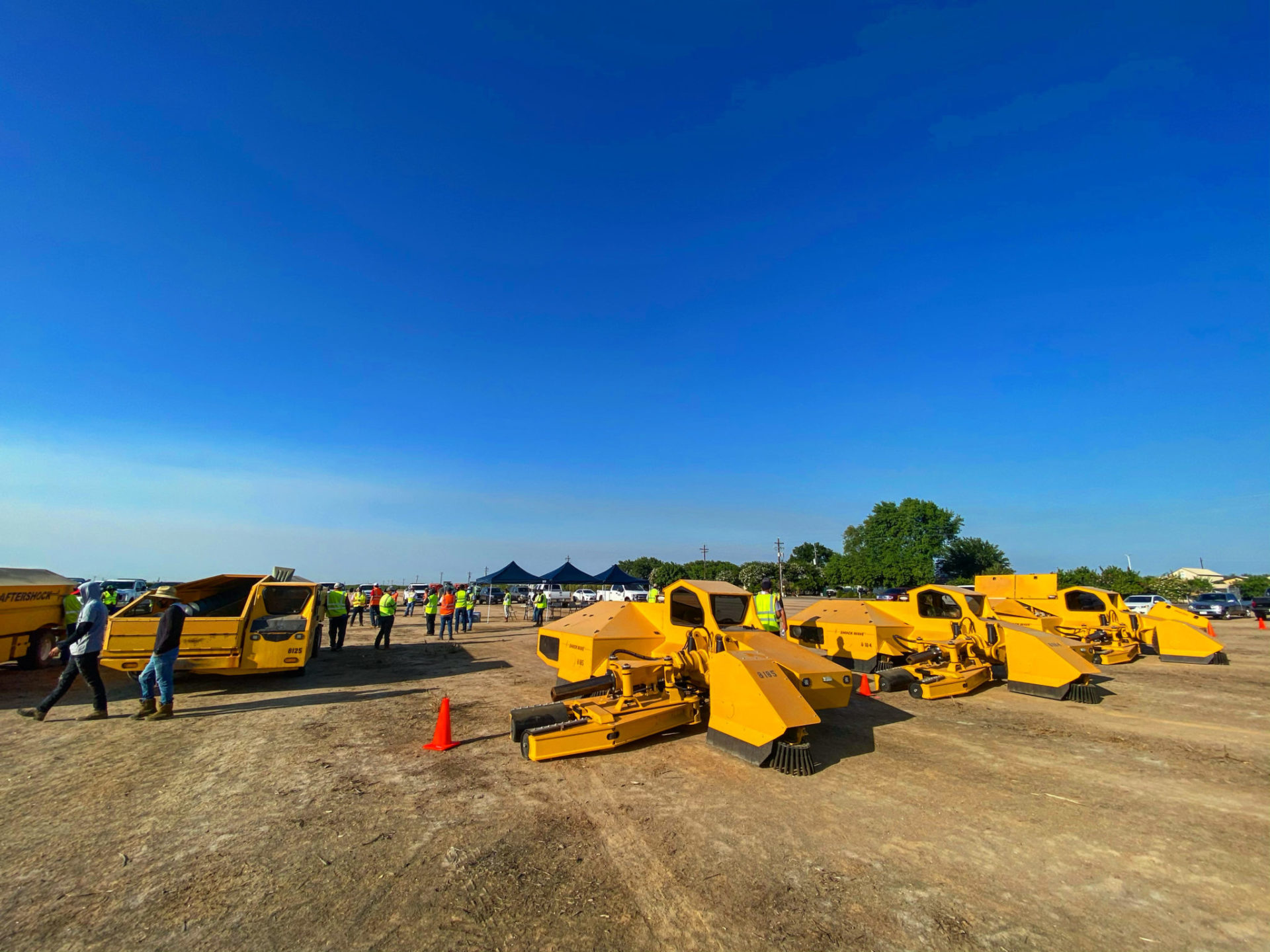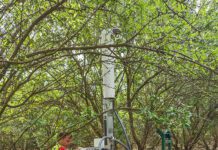
Staying safe around equipment, watching for heat-causing friction and paying attention to unusual sounds are some of the tips nut harvesting machinery manufacturers have for growers during harvest season.
The many moving parts of shakers, sweepers and harvest machines will need attention to keep them moving and efficient during harvest. The rubber parts on the machines will need to be monitored throughout harvest for wear and tear. Those include shaker pads, harvester fingers, sweeper paddles, conveyor belt, sweeper and harvester flaps, and rubber hosing.
Maintaining harvest equipment during the busy harvest season requires some vigilance and attention to detail, said Jack Rabbit service manager Dusty Boothe. He also advised not putting away harvest equipment at the end of the season and forgetting to do needed repairs. Getting the parts and repairs done now means you get in line, Boothe said.
While self-propelled tree nut shakers are built to withstand years of use, the rubber parts, including the shaker pads, need attention. Boothe said that these pads heat up over time. Coolant or lubricant pumps help keep them cool but the lines need to be checked to make sure they have not split or become crimped, cutting off coolant supply. Boothe said some operators choose to switch out pads in the middle of the day as high heat diminishes their efficiency.
Making sure all the sweeper pieces are intact is important before starting to make windrows. The fronts of most nut sweepers and harvesters have large rubber flaps that guide the nuts into the machine.
Michael Poncetta, Service Manager for OMC in Shafter, said he emphasizes safety precautions when working on harvest machinery.
“Things can get a little hectic when starting harvest and people forget to watch out for moving parts,” he added.
With shakers, look at the condition of the head, pads and bearings, and make sure all the pressures are set correctly.
Patrick Carey, service manager at Flory Industries, said daily inspections can keep machines on the job and avoid costly breakdowns.
Dusty conditions in the orchards can impact machine parts. Radiators should be checked to make sure there is no trash buildup. Oil, hydraulic fluid and DEF levels should be checked. Air cleaners should be checked for cracks in the housing or tube assembly.
Service the air cleaner when the restriction indicator on the machine display indicates this is necessary.
Drive belts should be inspected for proper tension and condition. The fuel/water separator should be drained if necessary.
Finally, Carey said, if the machinery has cameras, make sure they are in working order as they add to the safety of the operation.
















